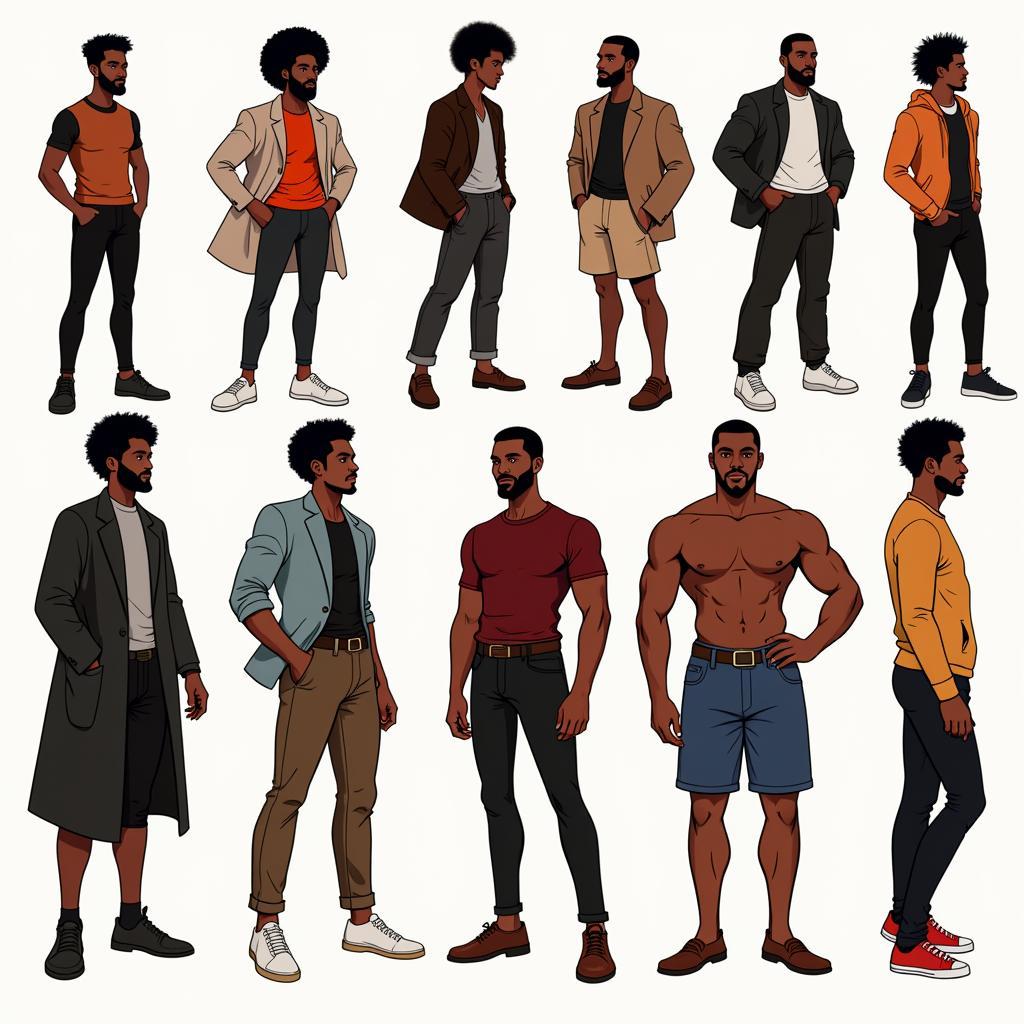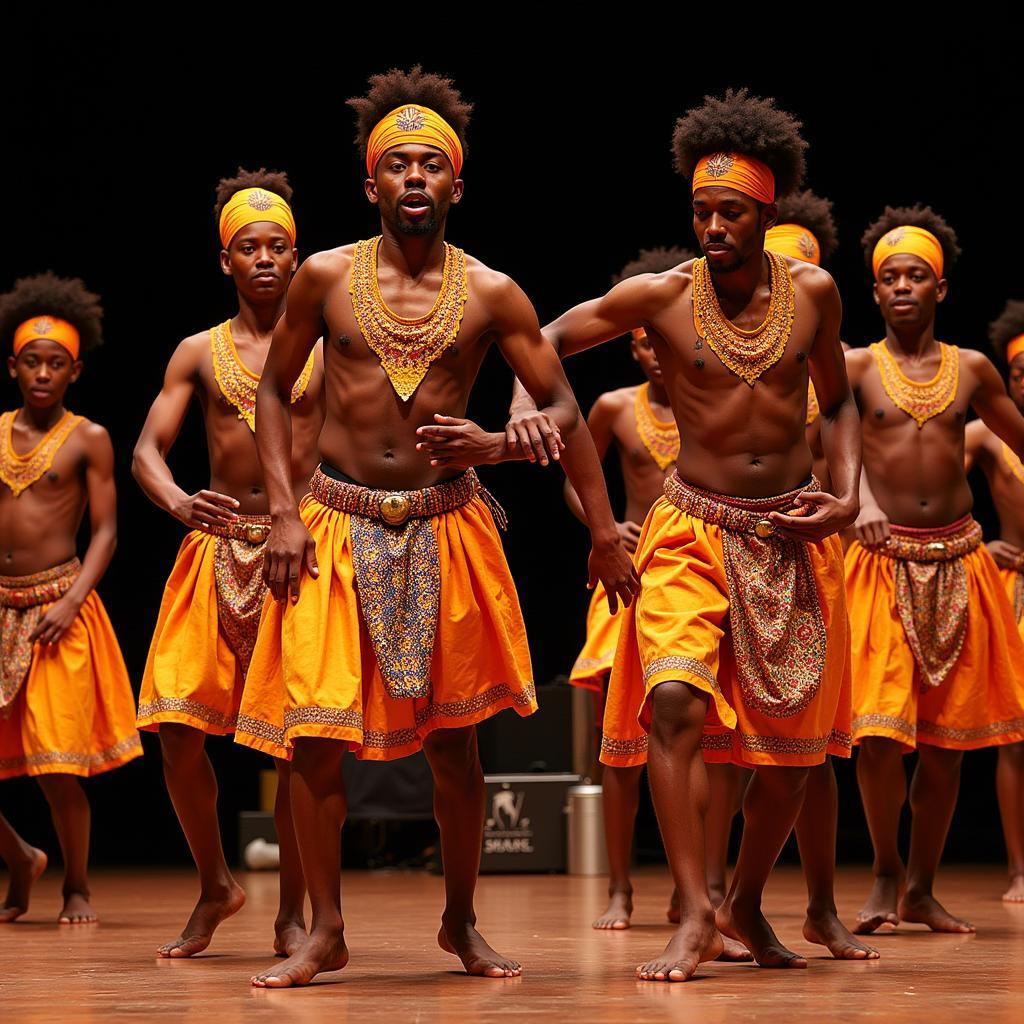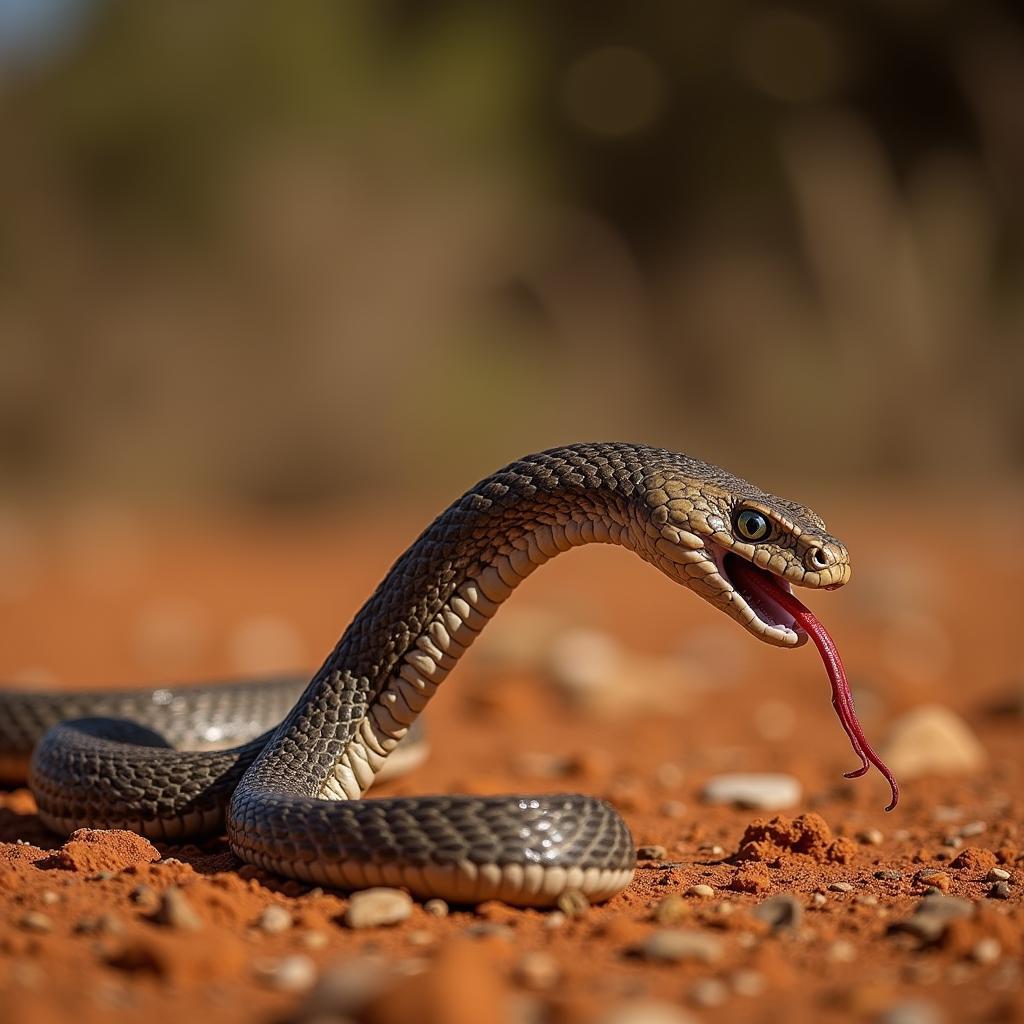Exploring the World of African American Man Cartoon
African American Man Cartoon representations have evolved significantly over time, reflecting changing societal attitudes and cultural perceptions. From early stereotypical portrayals to more nuanced and diverse characters, these cartoons offer a fascinating lens through which to examine the complexities of representation, identity, and the ongoing pursuit of accurate and respectful portrayals in media. Let’s delve deeper into this fascinating topic.
While early depictions often relied on harmful stereotypes, the landscape of African American man cartoons is progressively shifting. This evolution reflects a growing awareness of the importance of representation and the power of media to shape perceptions. We now see a push for more diverse, authentic, and empowering portrayals. Check out this african cartoon movie.
The History of African American Men in Cartoons
The history of African American men in cartoons is a complex and often troubling one. Early animated depictions, rooted in racist caricatures from minstrel shows and other forms of popular entertainment, perpetuated harmful stereotypes. These images served to reinforce negative perceptions and limit the roles available to Black actors and creatives in the animation industry.
However, even within these limited contexts, there were glimmers of progress. Black animators and voice actors, though often uncredited, contributed to the development of the art form. Their presence, however subtle, laid the groundwork for future generations to challenge the dominant narratives and push for more accurate and respectful representation.
The Importance of Authentic Representation
Why does authentic representation matter? Because the images we consume shape our understanding of the world and our place within it. For young African American boys, seeing themselves reflected positively and powerfully in cartoons can have a profound impact on their self-esteem and aspirations. For audiences of all backgrounds, diverse representation fosters empathy and understanding, breaking down harmful stereotypes and promoting a more inclusive society.
The rise of independent Black animators and the growing demand for diverse content are driving positive change. Creators like Bruce W. Smith, with his groundbreaking series “The Proud Family,” have demonstrated the power of authentic storytelling to resonate with audiences and create meaningful cultural impact.
The Future of African American Man Cartoon Representation
The future of African American man cartoon representation is bright, though the journey is far from over. As audiences continue to demand more diverse and inclusive content, the industry is responding. We are seeing more complex characters, more nuanced storylines, and more opportunities for Black creatives to tell their own stories.
This is further fueled by the increasing accessibility of animation technology. Independent creators and smaller studios are empowered to produce their own content, bypassing traditional gatekeepers and bringing fresh perspectives to the forefront.
 Diverse Representations of Black Masculinity in Cartoons
Diverse Representations of Black Masculinity in Cartoons
For instance, consider the african american man kid cartoon which exemplifies the positive changes in representation. Also, resources like the african american teenage book series further contribute to a broader spectrum of Black narratives.
What are common stereotypes in African American man cartoons?
Common stereotypes include exaggerated physical features, limited voice portrayals, and depictions of characters as lazy, aggressive, or hyper-athletic.
How can I find more diverse and positive representations of African American men in animation?
Seek out content created by Black animators and storytellers, support independent animation studios, and engage in conversations about representation in media. Look for resources that highlight diversity, such as african and american friendship inc.
How can I support Black animators and creators?
Follow their work, share their content, and advocate for greater diversity and inclusion in the animation industry. You can also check out some african american kid character comic for a wider range of representations.
In conclusion, the journey of the African American man cartoon is a reflection of the ongoing struggle for representation and equality. While the past holds painful reminders of harmful stereotypes, the present offers hope and the future promises even greater progress. By supporting diverse creators and demanding authentic representation, we can contribute to a media landscape that celebrates the richness and complexity of Black experiences.
FAQ
- Where can I find resources about Black animation history?
- Are there any online communities dedicated to discussing diversity in cartoons?
- How can I learn more about contemporary Black animators and their work?
- What are some key films and television shows featuring positive portrayals of African American men?
- How can I support initiatives that promote diversity in the animation industry?
- How can I teach children about the importance of media representation?
- What are some recommended books or articles on the topic of representation in animation?
Scenarios and Questions
Scenario: A parent is concerned about the lack of diverse characters in their child’s favorite cartoons.
Questions: What resources can help them find more diverse cartoons? How can they talk to their child about the importance of representation?
Scenario: A young aspiring animator is looking for role models and mentors in the field.
Questions: Where can they find information about Black animators and their career paths? Are there any mentorship programs or workshops they can join?
Scenario: An educator wants to incorporate discussions about media literacy and representation into their curriculum.
Questions: What teaching materials are available to address these topics? How can they create engaging and age-appropriate lessons for their students?
For further support or information regarding African culture, please contact us at: Phone Number: +255768904061, Email: [email protected] or visit us at: Mbarali DC Mawindi, Kangaga, Tanzania. Our customer service team is available 24/7.

